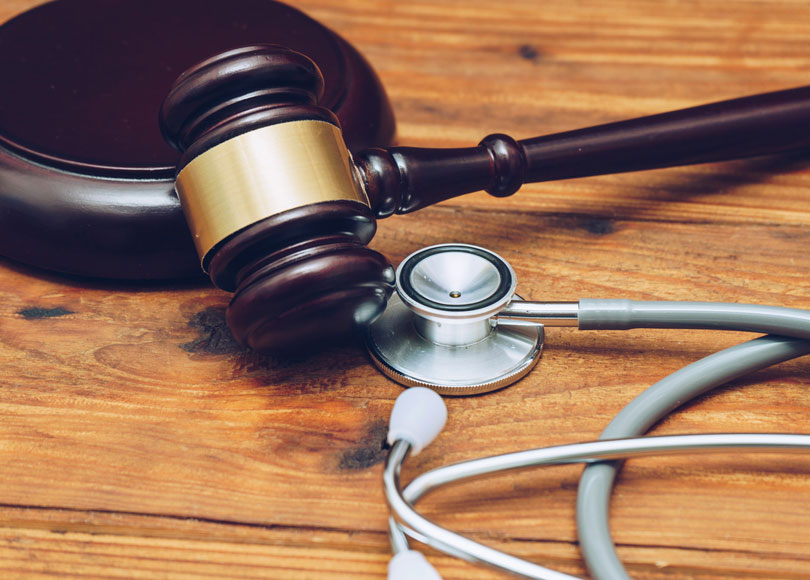
 By Adrienne Dresevic, Esq. and Isaac Sternheim, Esq. of The Health Law Partners, P.C.
By Adrienne Dresevic, Esq. and Isaac Sternheim, Esq. of The Health Law Partners, P.C.
On April 6, the Department of Health and Human Services Office of the Inspector General (OIG) and the Department of Justice (DOJ) jointly released the Health Care Fraud and Abuse Control Program Annual Report for Fiscal Year 2017. The Report details the revenues, expenditures, results, and enforcement actions under the Health Care Fraud and Abuse Control Program (HCFAC) for FY 2017.
By way of background, the Health Insurance Portability and Accountability Act of 1996 established a national Health Care Fraud and Abuse Control Program under the joint direction of the Attorney General and the Secretary of the Department of Health and Human Services, acting through the Inspector General, designed to coordinate federal, state, and local law enforcement activities with respect to healthcare fraud and abuse.
The Program’s goals are:
- To coordinate federal, state, and local law enforcement efforts relating to healthcare fraud and abuse with respect to health plans;
- To conduct investigations, audits, inspections, and evaluations relating to the delivery of and payment for healthcare in the United States;
- To facilitate enforcement of all applicable remedies for such fraud; and
- To provide education and guidance regarding complying with current healthcare law.
The DOJ and OIG are jointly required to release an annual report detailing revenues and expenditures under the HCFAC. According to the Report, $2.6 billion was returned to the Federal Government or paid to private persons from healthcare fraud judgments and settlements and from additional administrative impositions in healthcare fraud cases and proceedings.
Evidencing the continued scrutiny and enforcement in healthcare, the Report provided that in FY 2017:
- 967 criminal healthcare fraud investigations were opened by the DOJ;
- Criminal charges were filed in 439 cases involving 720 defendants;
- 639 defendants were convicted of healthcare fraud-related crimes;
- The DOJ opened 948 new civil healthcare fraud investigations;
- FBI investigative efforts resulted in over 674 operational disruptions of criminal fraud organizations and the dismantlement of the criminal hierarchy of more than 148 healthcare fraud criminal enterprises;
- 788 criminal actions were brought against individuals or entities that engaged in crimes related to Medicare and Medicaid;
- 818 civil actions were brought against individuals or entities, including false claims and unjust-enrichment lawsuits filed in federal district court, civil monetary penalties settlements, and administrative recoveries related to provider self-disclosure matters; and
- 3,244 individuals and entities were excluded from participation in Medicare, Medicaid, and other federal healthcare programs.
Further, earlier this year, the DOJ made policy changes with respect to how the agency handles healthcare fraud cases. In January, the DOJ established new limits on how the agency uses, and pursues violations of, guidance documents in civil cases in addition to shifting its policy for electing to dismiss qui tam actions. These two policy changes may potentially affect and decrease amounts recovered in FY 2018 and subsequent years.
Regardless of the amounts recovered by the HCFAC Program, the Report reinforces the importance of radiology providers and suppliers continuing to maintain effective compliance programs designed to ensure conformity with applicable regulations.
Click here to access the Health Care Fraud and Abuse Control Program Annual Report for Fiscal Year 2017.
Click here to access the DOJ’s Statement on the Report.
Adrienne Dresevic, Esq. is a Founding Shareholder of The Health Law Partners, P.C., a nationally recognized healthcare law firm with offices in Michigan and New York. Practicing in all areas of healthcare law, she devotes a substantial portion of her practice to providing clients with counsel and analysis regarding compliance, Stark Law, Anti-Kickback Statute, and compliance related issues. Ms. Dresevic serves on the American Bar Association Health Law Section’s Council, which serves as the voice of the national health law bar within the ABA. Ms. Dresevic also serves as the ABA Health Law Section’s Co-Chair of the Physicians Legal Issues Conference Committee, Vice Chair of the Programs Committee (Executive Leadership), and Vice Chair of the Sponsorship Committee. She is licensed to practice law in Michigan and New York, and can be contacted at adresevic@thehlp.com.
Isaac S. Sternheim is an associate attorney at The Health Law Partners, P.C. Mr. Sternheim concentrates his practice on regulatory and transactional matters including federal (Stark) and state self-referral laws, federal and state anti-kickback laws, reimbursement regulations, entity formation and healthcare-related transactional agreements. Mr. Sternheim’s experience includes representing healthcare entities and individuals in contract and shareholder disputes.
The authors are members of The Health Law Partners, P.C. and may be reached at (248) 996-8510 or (212) 734-0128, or at www.thehlp.com.


